FIU is looking for candidates for a postdoctoral position studying the causes of bonefish decline in Florida Bay and the Everglades. This postdoc position will play a lead role in the upcoming water quality study, funded by BTT.
Postdoctoral position at FIU, Miami: Bonefish decline in Florida Bay, Everglades: linking key drivers & recreational fisheries
Desired start date: Summer/Fall 2014
Duration: 2-3 years
Salary: $45,000/year plus benefits
Location: Florida International University, Miami, FL (Rehage lab & Southeast Environmental Research Center)
Position Description:
We seek a talented and enthusiastic postdoctoral researcher to work with a team of researchers examining the decline of bonefish in Florida Bay, Everglades National Park. Bonefish (Albula vulpes) are an economically-important recreational fishery in South Florida and the Caribbean, yet little is known about their ecology and population dynamics. Our study will examine the observed decline in the recreational angler catches of bonefish in Florida Bay and aims to identify the underlying drivers. Florida Bay is a shallow embayment at the southern end of the Everglades, bordered by the Florida Keys, and strongly affected by upstream water management and ongoing restoration efforts. Our project will examine the potential drivers of bonefish decline in Florida Bay taking a comprehensive and long-term retrospective approach that integrates multiple datasets.
The postdoc will be based in the Rehage lab at Florida International University, and will work with other faculty at the Southeast Environmental Research Center (SERC) at FIU (Dr. Fourqurean-seagrass ecology, Dr. Briceno-water quality, Dr. Heinen-natural resources-people conflicts), with researchers at Everglades National Park and at other agencies, and in close collaboration with the Bonefish and Tarpon Trust. The primary role of the postdoc will be to lead data analysis and manuscript preparation using multiple long-term datasets. Existing datasets expand 20+ years and include: (1) hydrological, water quality and climatic parameters, (2) seagrass dynamics, (3) prey abundance and distribution, and (4) bonefish angler catches. The angler catch data come from 2 key sources of information: creel data and fishing guide reports collected by Everglades National Park, and a survey of anglers and fishing guides being conducted as part of this study (work by a graduate student on the project).
Primary duties for the postdoc are to:
- Work with project PIs and collaborators to obtain, organize and prepare individual datasets for analysis.
- Conduct sophisticated spatial (GIS-based) and temporal analyses (e.g., time series) to examine linkages among data sets and identify the key factors driving bonefish angler catches in the system.
In addition to working with existing datasets, the postdoc will have the opportunity to assist with the key informant survey of anglers and guides and the design of a citizen science angler program associated with the project. The postdoc will also have the opportunity to collaborate on other projects in the Rehage and SERC PI labs, on ongoing research in an NSF-funded South Florida Water, Sustainability and Climate (WSC) project, and be part of the Florida Coastal Everglades LTER program and of other Everglades restoration-related research and activities.
Requirements: A PhD in ecology, fisheries, statistics or related field by Spring 2014 is required, and a degree with emphasis on quantitative skills is preferred. Excellent statistical skills, and evidence of these in previous work and publications in combination with a strong ecological/fisheries sense are needed for this position. In particular, experience in geospatial statistics, GIS, ecological modeling, and analysis of large datasets are essential. Experience and interest in aquatic/marine ecology, population ecology, fisheries, working with multiple data sets including angler records are also preferred. Applicants must have a demonstrated record of publication in peer-reviewed journals, and ability to interface well with collaborators, resource managers and stakeholders (anglers).
To apply: Please send a single PDF containing (1) a cover letter describing your fit for this position (particularly describing your quantitative skills, past accomplishments & career goals), (2) a CV including a list of 3 references, and (3) representative publications to Dr. Jennifer Rehage, rehagej@fiu.edu. Please use the subject matter: FL Bay postdoc + your last name in your email. Review of applications will begin June 1st. Position is open until filled. We thank you in advance for your application and please expect a contact only if selected for an interview.
For more information, please visit:
https://www2.fiu.edu/~rehagej/index.html
https://sercweb.fiu.edu/
https://earthenvironment.fiu.edu/
https://sfwsc.fiu.edu/
https://fce.lternet.edu/
https://www.btt.org/
SERC is a research-intensive and productive academic unit with strong expertise in freshwater and marine ecology, biogeochemistry, and tropical/subtropical ecosystem dynamics. FIU is a public research university in Miami with a highly diverse, vibrant, and growing student body located near the edge of the Everglades. Our multiple campuses serve over 50,000 students, placing FIU among the ten largest universities in the nation. FIU is Carnegie-designated as both a research university with high research activity and a community-engaged university. FIU leads the nation in granting bachelor’s degrees, including in the STEM fields, to minority students, and is first in awarding STEM master’s degrees to Hispanics. FIU is a member of the State University System of Florida and is an Equal Opportunity, Equal Access Affirmative Action Employer.



